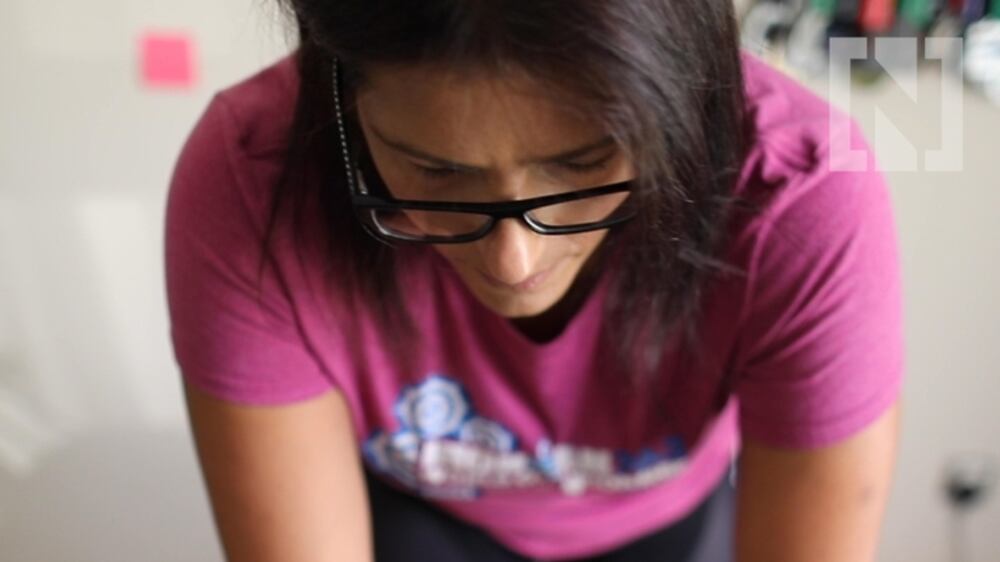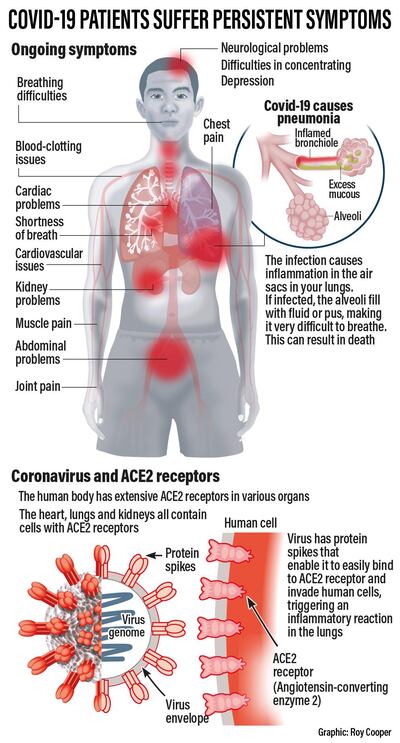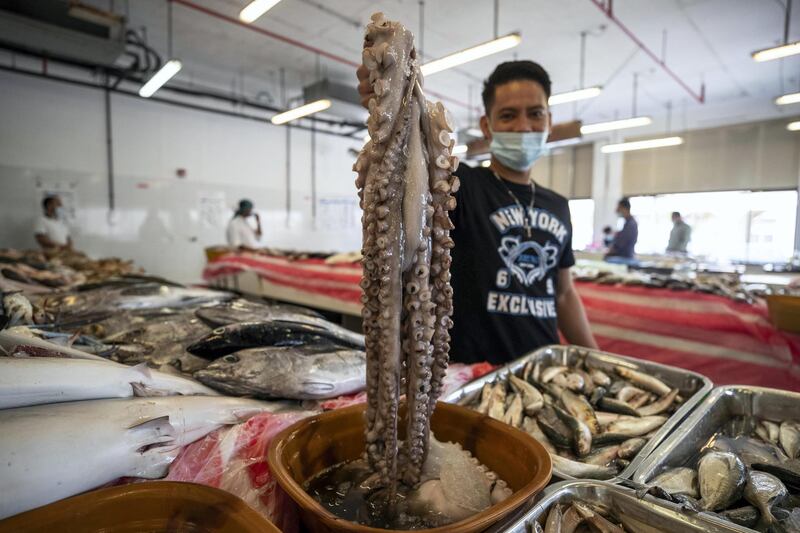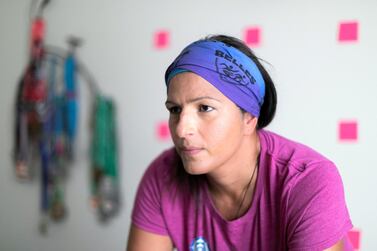Related: What we know now about how the virus attacks the organs
Some Covid-19 patients suffer few symptoms and recover quickly.
But many others face long-term consequences that include extreme fatigue and persistent breathing problems.
Doctors remain unsure about what is causing “long covid” and there is uncertainty as to how long effects will continue.
But there is huge concern that coronavirus that lead to serious health implications encompassing renal, abdominal and neurological problems.
Research in Italy found that, among patients whose initial illness was severe enough for them to be hospitalised, almost nine in ten experienced after-effects two months on.
How a mild case of Covid-19 hit hard

While recovery can often be slow for people admitted to hospital for any illness, especially if they need to be treated in intensive care, long Covid is affecting even some individuals who only experienced mild symptoms early on.
A UK study indicated that about 10 per cent of people who had a mild case of Covid-19 still felt after-effects four weeks on, while 2 per cent felt after-effects eight weeks on.
Dr Bharat Pankhania, a senior clinical lecturer at the University of Exeter in the UK and consultant in communicable disease control, said at the moment doctors “don’t understand” the full range of Covid-19 and post-Covid symptoms.
“All we are doing is picking up signs and symptoms, and picking up lots of people with this illness, and the pattern is developing,” he said.
“While the pattern is developing, we don’t know exactly the mechanisms whereby this is happening … There’s obviously a sort of persistence of infection.”
Indications as to how “long haulers”, as people with persistent symptoms have been dubbed, will be affected may be offered by other diseases to have emerged in recent decades. The Penn Medicine healthcare system in the US said the longer-term consequences of Covid-19 “would likely resemble those of recent coronavirus-related disease outbreaks”.

Among these is SARS (Severe Acute Respiratory Syndrome) which caused illness in mainland China, Hong Kong, Canada and elsewhere between 2002 and 2004, killing hundreds and leaving many survivors with mental and physical after-effects.
A study from 2009 that looked at the longer-term outcome for SARS survivors reported that around 40 per cent suffered from fatigue and a similar proportion faced ongoing psychiatric problems.
The research found that the physical symptoms of most patients tended to improve in their first year, although in some they did not.
A study released a year later that looked at the outcome of SARS patients two years after their illness found just over half had persistent impairment in lung function, with the ability to exercise and overall health status of many significantly below normal. Just over one-fifth had not returned to work two years on.
SARS was fatal in more than nine per cent of those infected, a much higher proportion than has been seen with Covid-19.
Just as it took years to understand the overall effects of falling ill with SARS, so it is likely to be with Covid-19, according to clinicians.

“I would estimate two to three years,” said Dr Pankhania. “Because it affects so many people, there are these pressures to find solutions.”
Among those hoping to better understand long Covid is Prof Frances Williams, of King’s College London, who is part of a major ongoing research programme looking at thousands of twins.
This research initiative, which pre-dates the coronavirus, is being used to help determine the biological mechanisms behind long Covid.
It is already thought by doctors that some who fall acutely ill develop a “cytokine storm” – cytokines are proteins released by many cells in the body – which is an over-reaction of the immune system to infection.
Researchers are interested in uncovering more about how the immune system could be influencing chronic illness too.
As part of Prof Williams’ study, questionnaires were sent out in July looking for relationships between a person’s pre-existing immune status, which has already been recorded for study participants, and how their body reacts to coronavirus infection. A further set of questionnaires, being sent out now, will examine how long symptoms are lasting. Preliminary results should be available within the next two months.
“We will take all those with antibodies to Covid and those with long-lasting symptoms and those whose symptoms improve and compare their immune systems to see if we can spot any difference that makes it more likely to have long-lasting symptoms,” said Prof Williams.
As well as an autoimmune disease sparked by the coronavirus, there are other suggestions for what causes long Covid.
A UK Parliament briefing document stated these include the possibility that virus particles linger in the body and cause a continued immune response, or that a “reservoir” of the virus is hiding in the body and reactivating.
Prof Williams said she thought it less likely that long-lasting symptoms resulted from a persistent infection, but suggested they were instead possibly “something inherent in the immune system”.
“One big question is whether we’re going to have people with fatigue that lasts for years, which is possible,” she said.












